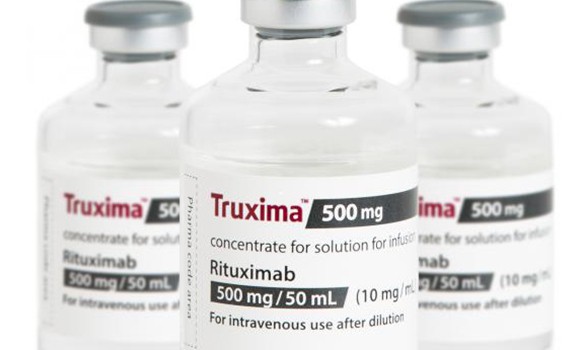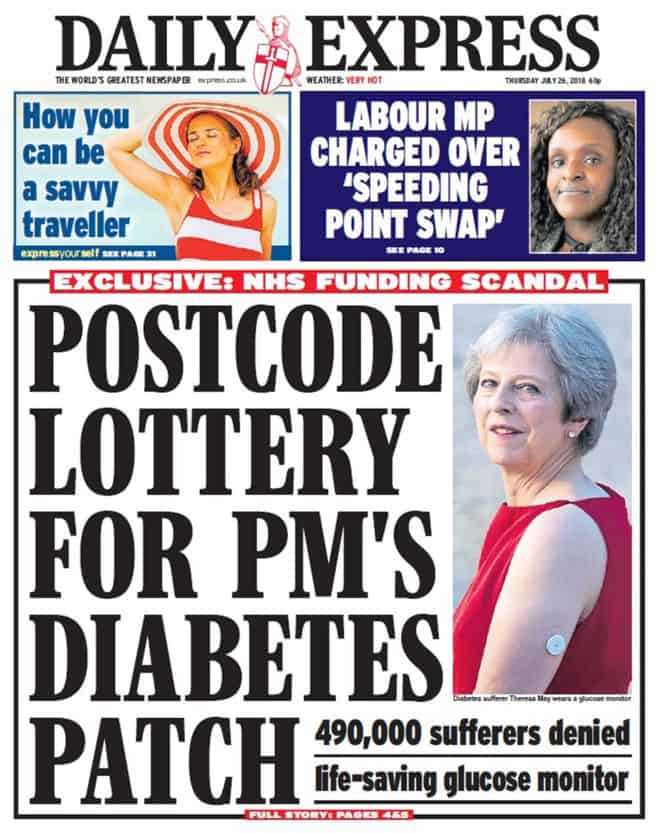Biosimilars bite into Roche’s European revenues
Roche has seen revenues from blockbuster MabThera/Rituxan slashed in half in Europe thanks to growing biosimilar competition in the second quarter.
Sales of the biologic declined 47% in the region, dragging down Roche’s overall revenues for Europe by 8% to 4.53 bn swiss francs ($4.57bn) for the three month period.

A number of biosimilar versions of the drug hit European markets last year, including Celltrion’s Truxima, (pictured), marketed by Mundipharma and other firms across the region, and this year has seen their uptake surge.
Roche’s European decline was set against a growth of 7% in global sales, thanks largely to a 15% increase in the US business. Strong launches for new medicines Ocrevus, Tecentriq and Alecensa, especially in Germany, partially offset the loss in Europe.
Perjeta sales continued to grow, specifically in the metastatic and neoadjuvant settings, rising to 1.3bn swiss francs in global sales.
More biosimilar erosion in Europe is close at hand, however: 2018 will see the decline in Herceptin (-5% this quarter) and Avastin (-2%) accelerate.
Read the Roche Q2 release
Gilead’s chief exec to step down
Gilead’s CEO and President John Milligan, is to step down after a 28-year career with the company, the last two as its leader.

Milligan has been with Gilead since 1990, when it was a privately-held start up company, and told analysts he was proud to have helped it become the “$100 billion market cap company we are today”.
It is truly the end of an era at Gilead, as another of its founding fathers, John Martin, former CEO and currently chairman, also announced his departure.
Milligan says he will stay in post until the end of this year, while the search commences for a new CEO, and Martin will also step down once the new leader is found.
The two execs have helped build up the company, first by becoming market leaders in HIV and then by bringing a cure for hepatitis C to the market in the shape of Sovaldi and follow-on products.
However sales in its hepatitis C franchise peaked several years ago, and the company is still in steep decline because of dwindling sales from these therapies.
The announcement coincided with Gilead’s Q2 report, which showed the company still going backwards because of declining revenues from its hepatitis C franchise.
Net income fell by nearly half to $1.82 billion from $3.07 billion in the same period last year. Revenues fell a full 21% to $5.65 billion, although this shrinkage was not as severe as analysts had predicted.
Milligan’s biggest strategic move in his two year tenure as CEO was to acquire cell therapy specialist Kite for $11.9bn in 2017. However while its CAR-T therapy Yescarta is as ‘transformative’ in its lymphoma therapy area as Sovaldi, it doesn’t promise the same level of revenues or profits as the hep C treatment.
Gilead says it will look for a new leader with expertise in two of the company’s future growth areas, the liver disease NASH and oncology.
Theresa May and postcode prescribing of Abbott’s FreeStyle Libre
The Daily Express has put NHS ‘postcode prescribing’ of Abbott’s FreeStyle Libre on its front page today, investigating the limited access to the diabetes monitor used by Prime Minister Theresa May.

Abbott’s device is a glucose monitor which can be worn on the skin, freeing patients from regular fingerprick blood sugar tests.
The prime minister, who has type 1 diabetes, clearly displayed her device when she wore a sleeveless gown while entertaining President Trump at an evening reception at Blenheim Palace earlier this month.
The Daily Express found only half of England’s 195 Clinical Commissioning Groups currently pay for its use, while 43 have a blanket bans in place, and a further 33 are still reviewing its funding.
The current commercial list price of FreeStyle Libre is £57.95 for the reader, plus £57.95 for a disposable sensor (including VAT) that must be replaced every two weeks. Many CCGs are currently facing financial difficulty, and are able to make local decisions to fund or not fund certain new medicines and devices.
The FreeStyle Libre has not been formally reviewed by NICE, but by England’s new network of Regional Medicines Optimisation Committees (RMOCs). The recommendation in November was for its use to be restricted to type 1 diabetes patients, and only in those struggling to control their blood sugar using standard testing equipment.
Read The Express story here




